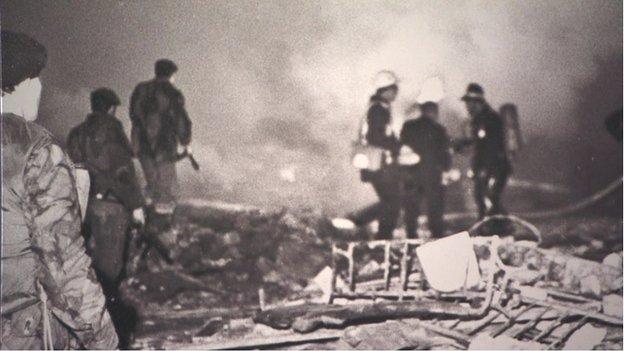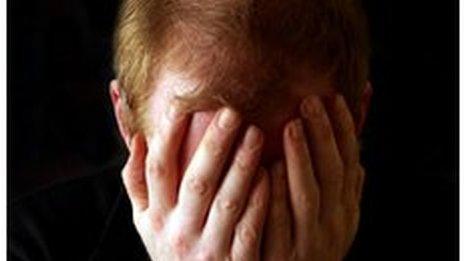Troubles 'linked to half mental health cases in Northern Ireland'
- Published

More than 3,600 people were killed during Northern Ireland's Troubles
A new study has claimed the Troubles are linked to half the cases of mental health issues in Northern Ireland.
The research was conducted by Ulster University on behalf of the Commission for Victims and Survivors.
It found almost 30% of the NI population suffer mental health problems, and nearly half of those are directly related to the Troubles.
The Department of Health said it had no official figures on "the level of directly associated mental illness".
However, it said "emerging evidence indicates that Northern Ireland has high levels of, often untreated, post traumatic stress disorder as a result of decades of violence".
It said it was working with the Office of the First Minister and Deputy First Minister "on plans to address the Stormont House Agreement commitment to establish a comprehensive mental trauma service".
More than 3,600 people were killed during the 30 years of Northern Ireland's Troubles and thousands more injured.
The new report has made 12 broad recommendations in the areas of policy, services and research to meet the needs of those affected.
Ulster University's Professor of Mental Health Sciences Siobhan O'Neill, who led the academic team who produced the report, said the vast majority of the population "suffered minimal long term mental ill-health issues as a result of the Troubles".
However, she said a "significant number of individuals who directly experienced decades of violence and social deprivation have gone on to develop serious mental health and substance disorders".
John Beggs, Secretary to the Commission for Victims and Survivors, said the report "highlights the ongoing and future challenges for victim and survivors as conflict-legacy issues continue to threaten life opportunities and undermine the peaceful transition from our troubled past".
- Published20 March 2014

- Published5 December 2011
